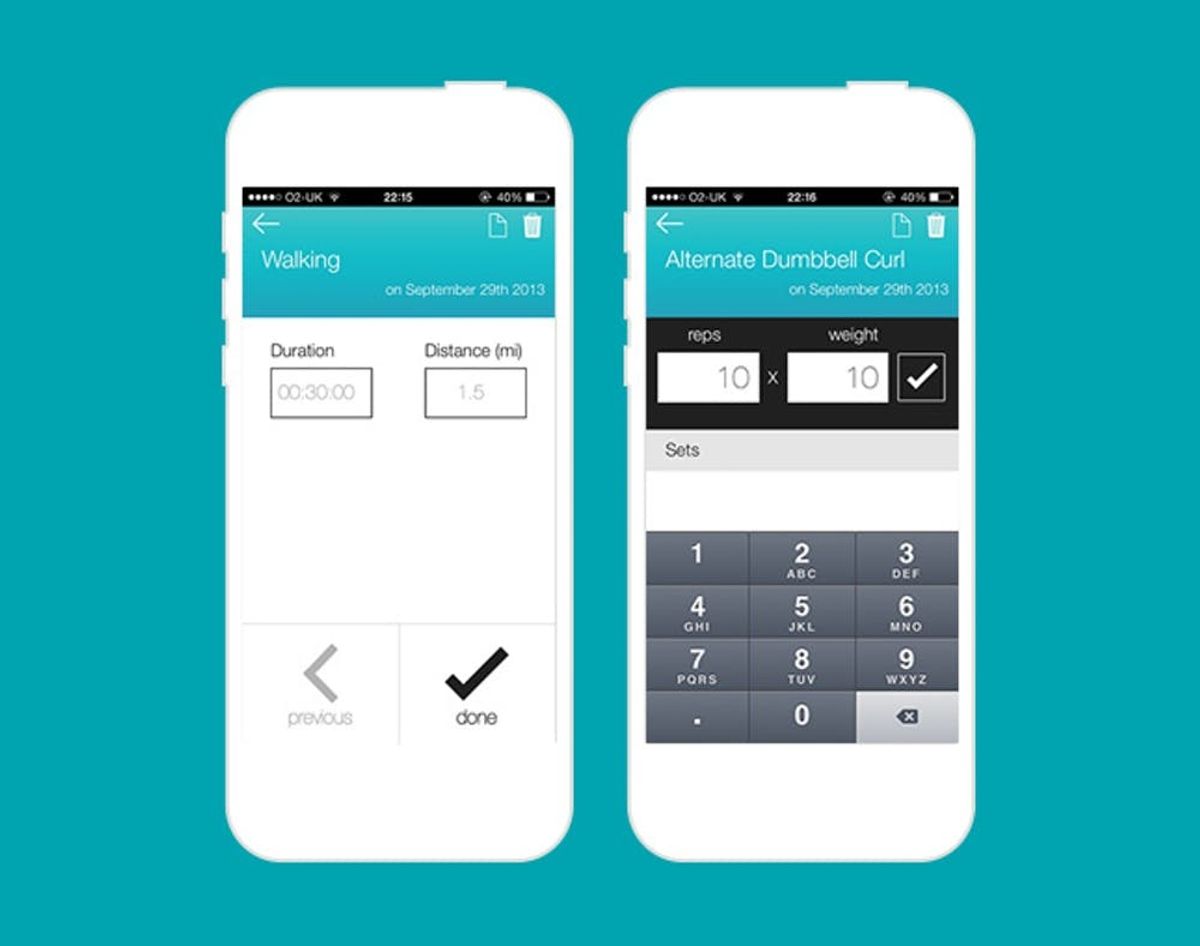Fitlist is an app that serves as a workout tracker, exercise planner and routine builder all in one.
Fitlist Turns Your iPhone Into a Personal Trainer

Let’s face it, personal trainers are amazing. They keep track of your workouts, monitor your progress and keep you motivated week after week. But they’re also insanely expensive and an unrealistic luxury for most of us. That’s where Fitlist comes in. Fitlist is an app that serves as a workout tracker, exercise planner and routine builder all in one.
Fitlist is meant to be used while you’re working out, and works with any type of exercise — cardio, weightlifting, crossfit, circuit training. You can choose from a list of over 1,000 exercises, or input your own, to piece together a workout that’s just right for you. When you finish, the workout saves to the app’s calendar that lets you build a daily, weekly or monthly exercise routine. It even includes a timer so you can track your sets without having to wear a watch (sweet!).
So, what makes Fitlist different than the other million trackers we’ve shown you? This one isn’t centered around your distance, calories or diet. Instead, it takes those clipboards and papers you’ve been using to track your routines and goals at the gym and turns them into a one-stop shop that even graphs and charts your progress as you go. It saves data about the weights you are using, how many reps you did and more, so you know exactly where to start next time. Work out with friends? No problem! The app lets you post workouts and updates to Facebook or airdrop them to nearby buddies. We all know working out with others is way more motivating than by ourselves, and clearly Fitlist gets that, too!
Fitlist’s basic version is available for iOS devices running 7.0 or above. A premium version, which features more detailed, easy-to-read charts and graphs of progress, can be purchased for $1.99. The lavish perks of a personal trainer right within our iPhone for only two bucks? Sign us up!
Are you going to download Fitlist? What do you look for in a workout app? Share your thoughts with us below or on Facebook.









